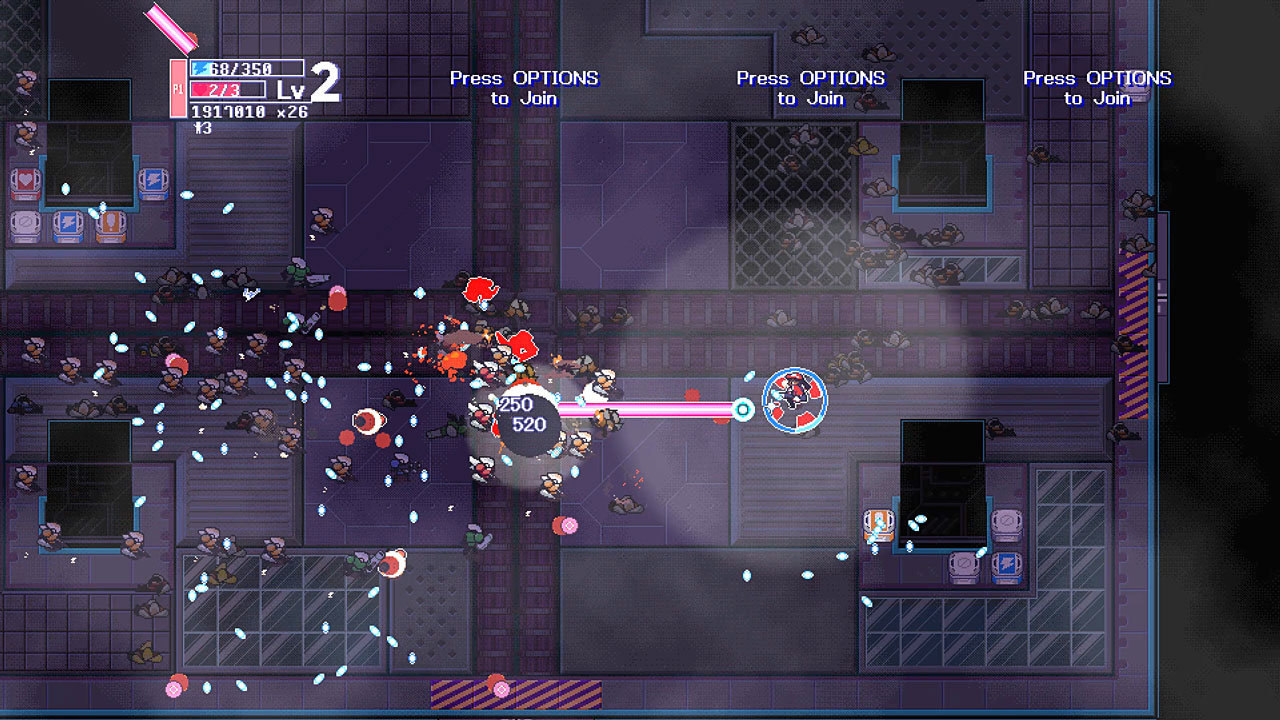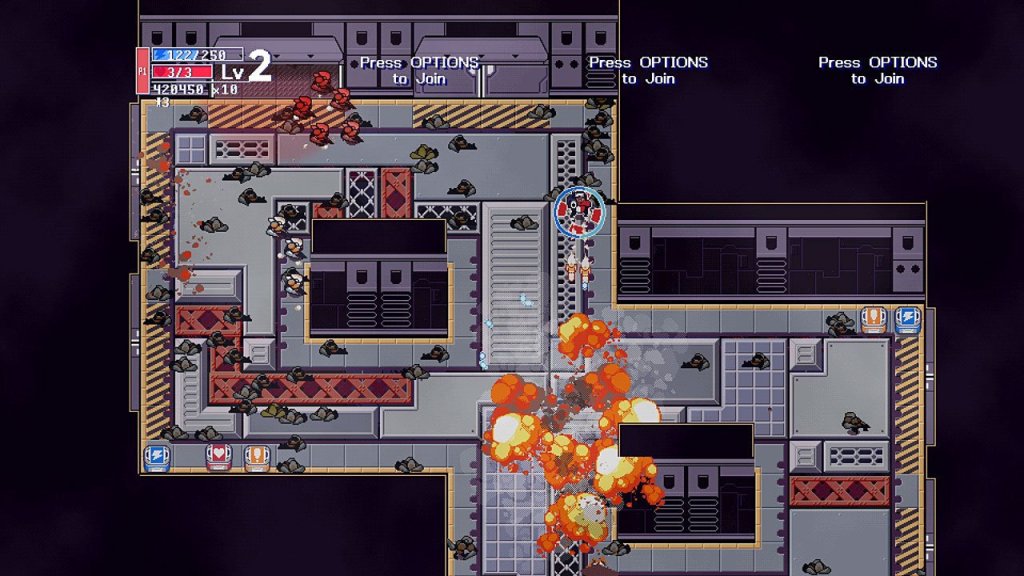Top-down twin-stick shooters are ten-a-penny these days. With the likes of Geometry Wars 3, Helldivers, Assault Android Cactus, Neon Chrome, Super Stardust Ultra, Crimsonland, Dead Nation and Enter the Gungeon – amongst a veritable stack of others – all competing for your dollars, new titles must provide truly new ideas to get a shout, or at the very least, must provide a lot of polish and addictive gameplay.
Circuit Breakers – despite borrowing the title of a decent PSOne racer from back in the day – brings one new idea to the table in that it does away with weapon pickups. Instead, your gun is powered by crystals which are dropped by downed enemies or collected from crates. Picking up enough of this good stuff will cause your lone weapon to be upgraded, while just spraying bullets everywhere with no thought for recharging will have the opposite effect and could see you essentially facing a robot army with nothing put a weak pistol.
It’s an interesting idea that hasn’t necessarily been implemented all that well. You could have been walking a tight line that made you take risks to pick up more energy so that you could keep blasting away with a higher-level weapon, but the sheer amount of crystals that the enemies drop means that isn’t the case. As long as you’re firing and walking somewhere and not discharging your gun into the scenery, the sheer number of retro-styled enemies that are deployed means there’s a better than average chance that you’ll be packing enough heat to barely even have to worry about your energy levels. That isn’t to say that Circuit Breakers is easy. Far from it, in fact, since the game’s home run swing of simply overwhelming you to the point that you succumb to the horde is deployed quickly and often. You can use a shield that eats your energy reserves when you get into a tight spot, but it’s frequently more effective to just keep firing in the general direction of the threat until you’ve (hopefully) cleared them away.
Limited Aims…
Sadly, many oversights stop things from becoming addictive and getting the game anywhere near that top tier. Despite having an analog stick to play with, shooting is limited to eight distinctly digital directions, which often feels unfair. Spying a crate of explosives that could clear a path is all well and good, but not being able to hit it because you’re only able to fire way left or way right of it will often put paid to your plans. There’s a distinct lack of progress to be found, too.
The main meat of the game is provided by an arcade mode that sees you starting with three lives and trying to clear dozens of rooms, with boss levels punctuating the action every now and again. You never know how many enemies you need to beat to clear a room, since Circuit Breakers seems to just randomly decide when to open the exit door, often while the place is still riddled with foes. That kills off a lot of the strategy. Do you hole up in the corner and preserve your health to try to survive this last wave? Or do you go in all guns blazing to get to that health pack and give yourself a fighting chance? You’ll have no idea, since there could be one more enemy to kill, but there could just as easily be a thousand of them and two sub-bosses.
There’s absolutely no story to be found and every single run feels the same. Beating your best attempt doesn’t provide any sort of change or benefit for your next try. You die, then start again at room zero with the game barely even acknowledging that you’ve even played it before. Modifiers allow you to rack up higher scores, but you only start with one of these unlocked and the others take forever and a day to become available to use.
…And Limited Modes
A Score Attack mode is provided which plays identically to the arcade mode, though each course is limited to a much smaller selection of rooms. Beating a score target unlocks the next course so there is some progression there, but it isn’t necessarily enough to ensure repeated plays are on the cards, especially when more than half of your final score is made up of bonus points that sometimes feel as if they’re handed out randomly. An almost flawless run can see you fall way short of the target, while an attempt that saw you crawl over the line on the last block of health of your last life can be enough to get the job done. To help lengthen the playing time, the developer has added a list of challenges to beat for each character (on top of a general challenge list) and these are ultimately tied to trophies. Given that some of these tasks are incredibly optimistic – play for 10 hours, for example – only the fanatical trophy hunters will really pay them any attention.
There is fun to be had in local co-op, which supports up to four players, as there’s something of a tug of war that goes on when it comes to collecting the dropped energy and keeping your weaponry leveled up. Again though, it isn’t something you’ll come back to very often. Online play would have been a nice touch that might have furthered things and given the game some legs, but it hasn’t been included.
With Circuit Breakers, what you get for your money is a very, very basic twin-stick shooter that is missing a lot of what makes the best in the genre so special.
Circuit Breakers PS4 review code provided by publisher. Reviewed on PlayStation 4. For more information on scoring, please read our Review Policy here.
-
Local co-op can be fun in short bursts
-
Might make you think of Smash TV
-
Missing a lot of the basics
-
Weapon upgrade feature is pretty redundant
-
No feeling of progression
Circuit Breakers
-
Circuit Breakers
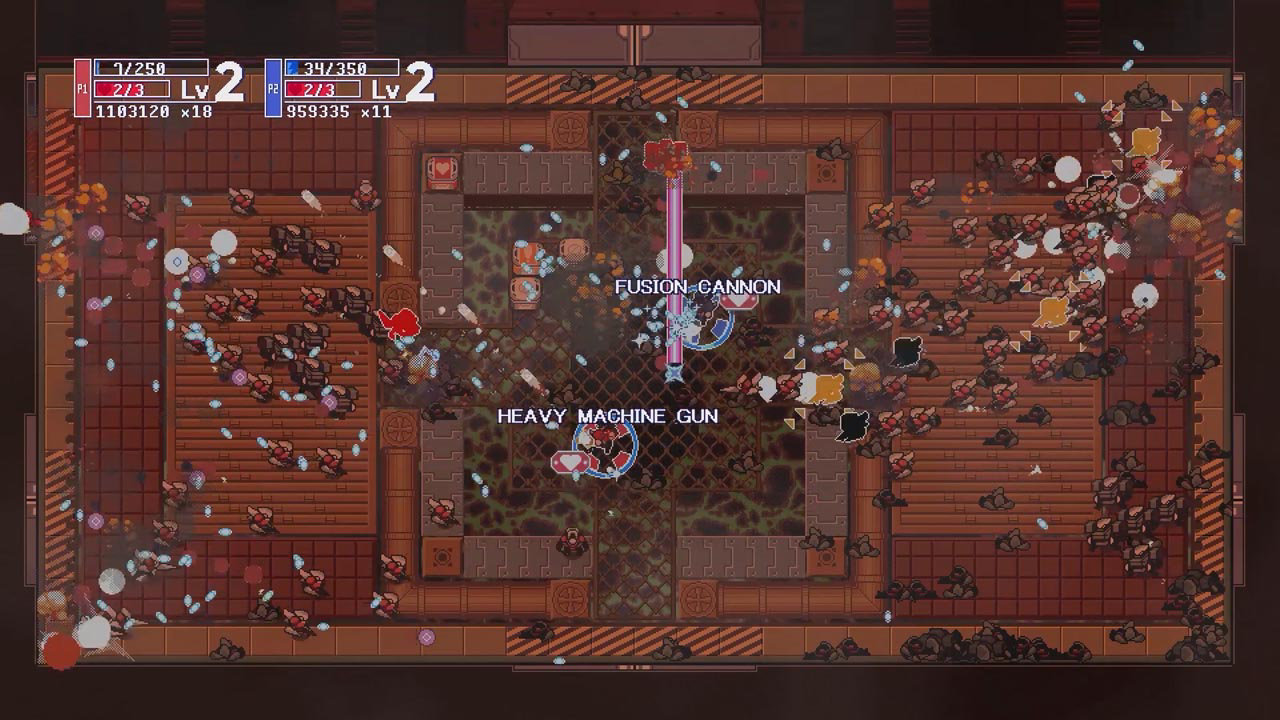
-
Circuit Breakers
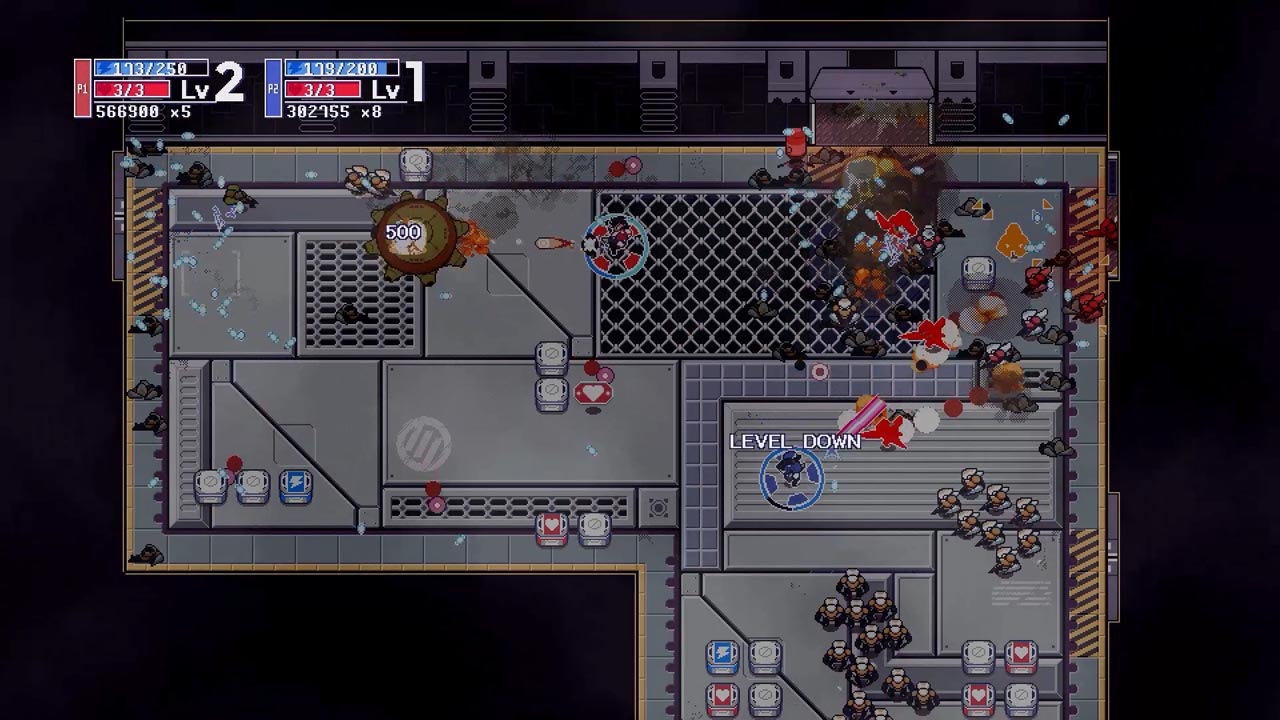
-
Circuit Breakers
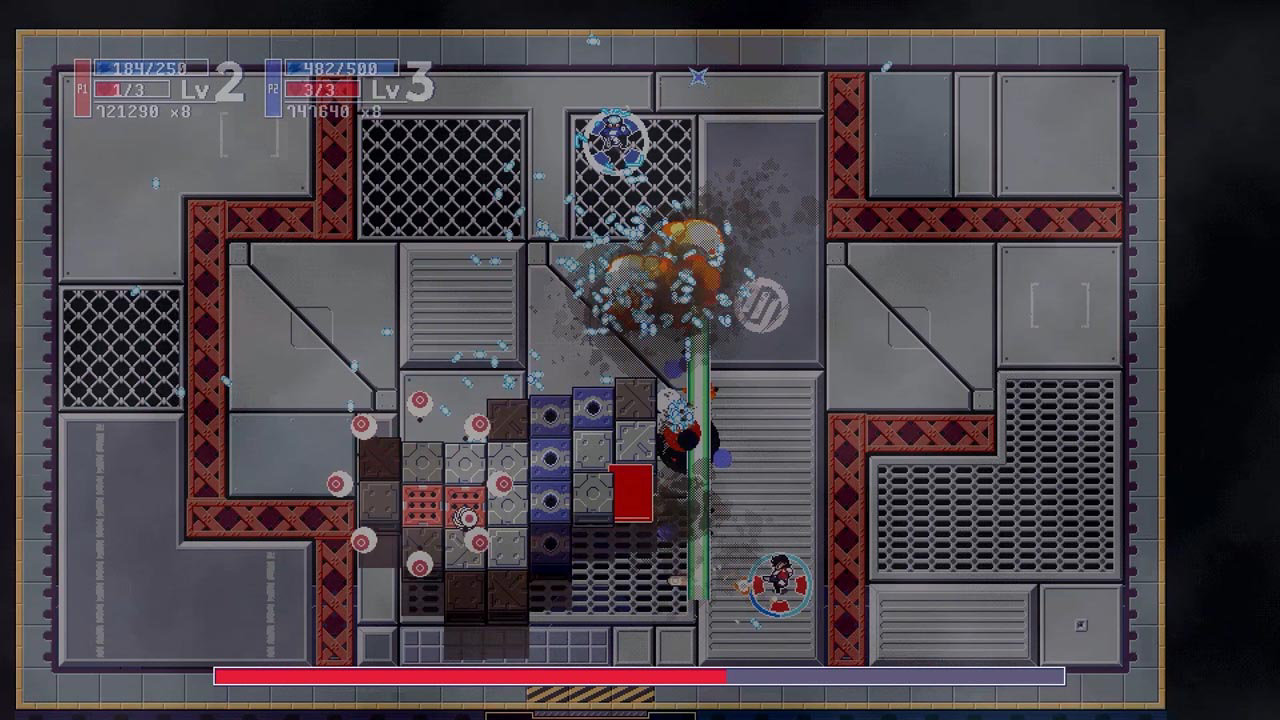
-
Circuit Breakers
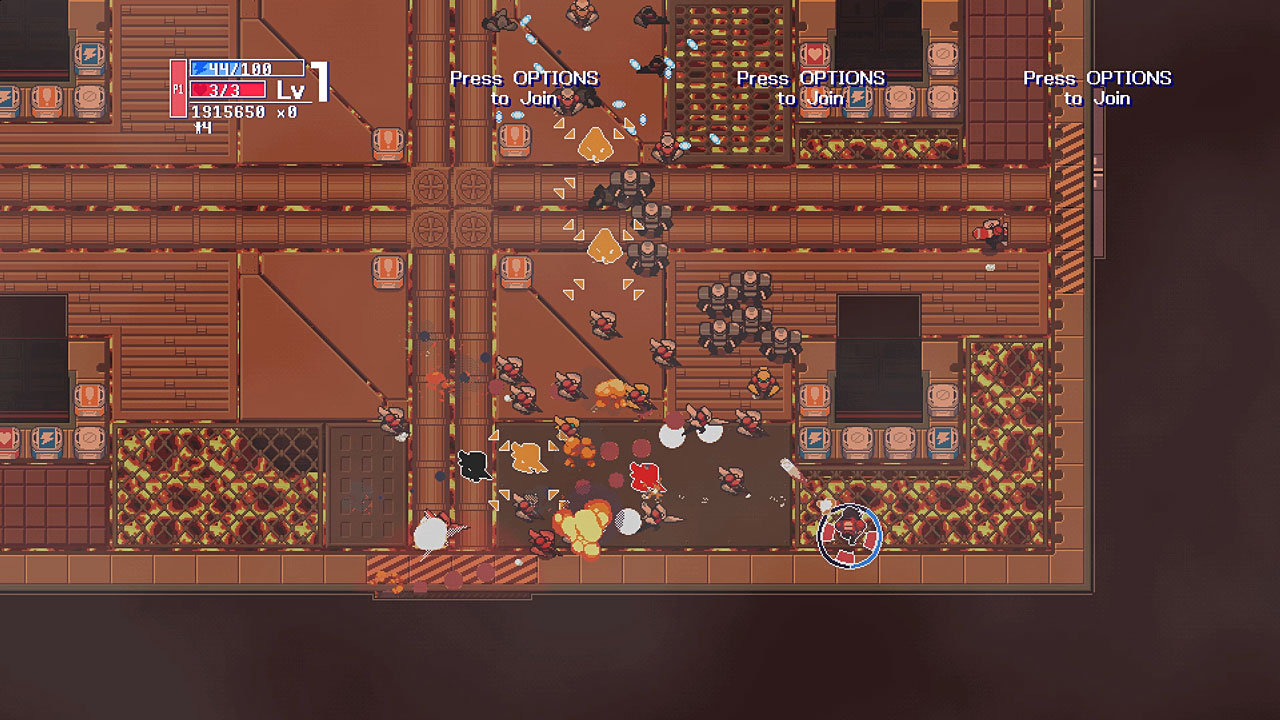
-
Circuit Breakers
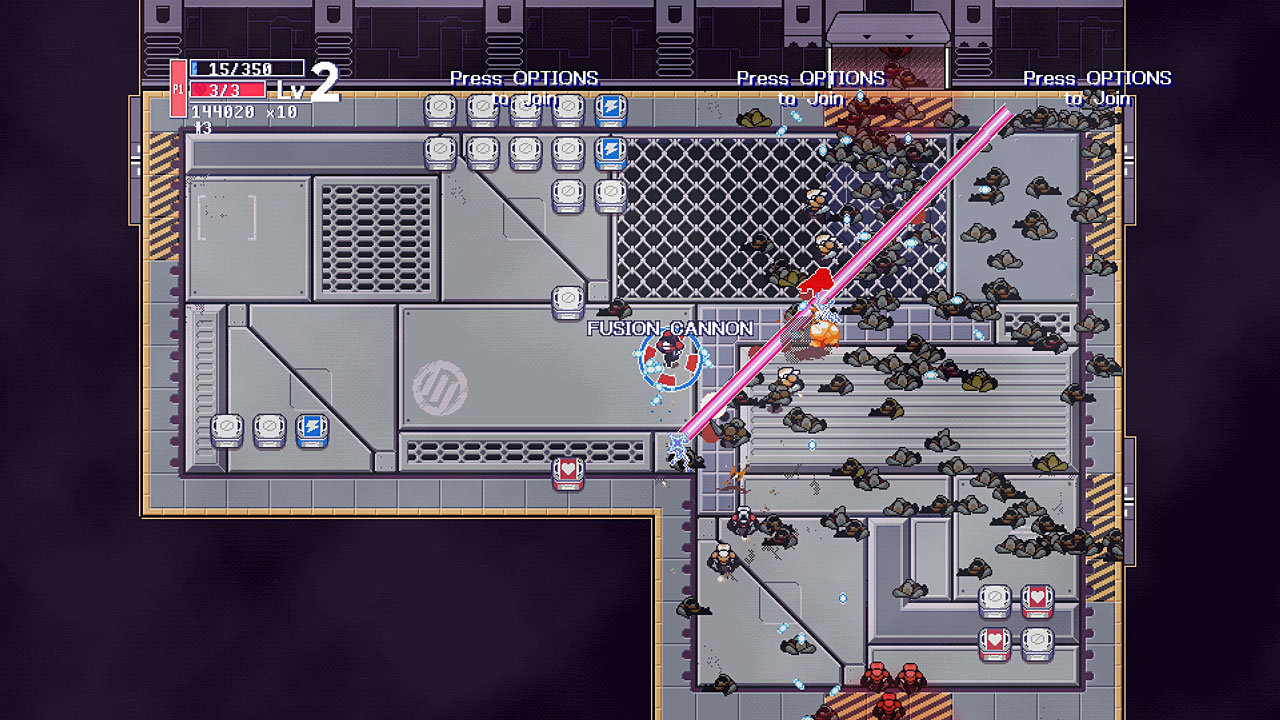
-
Circuit Breakers
